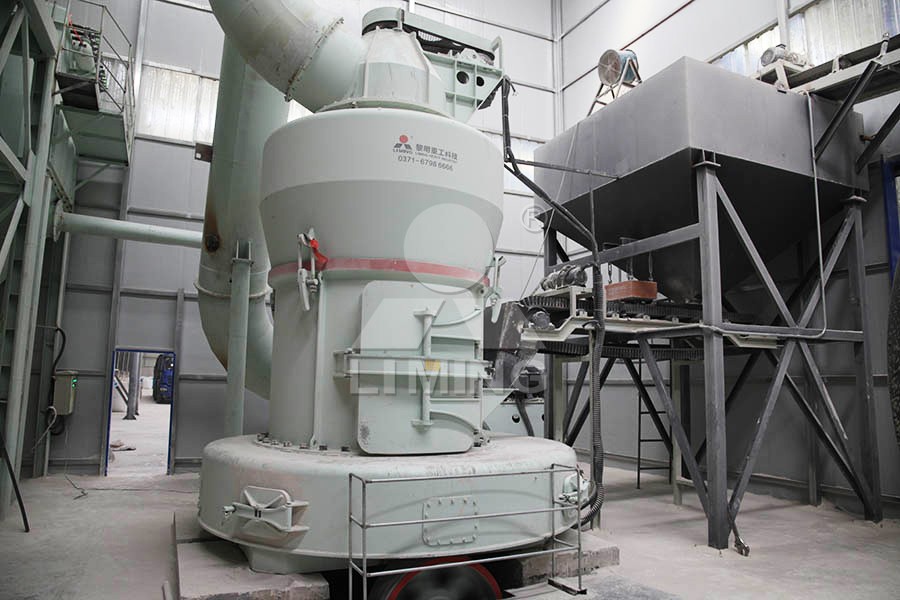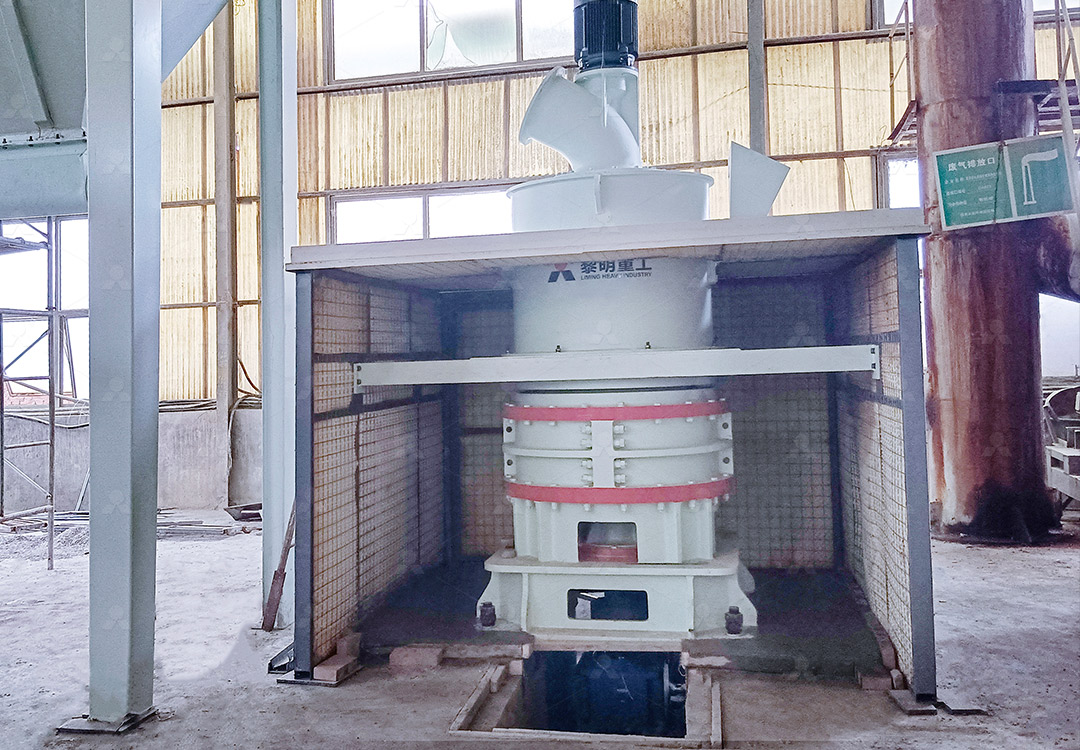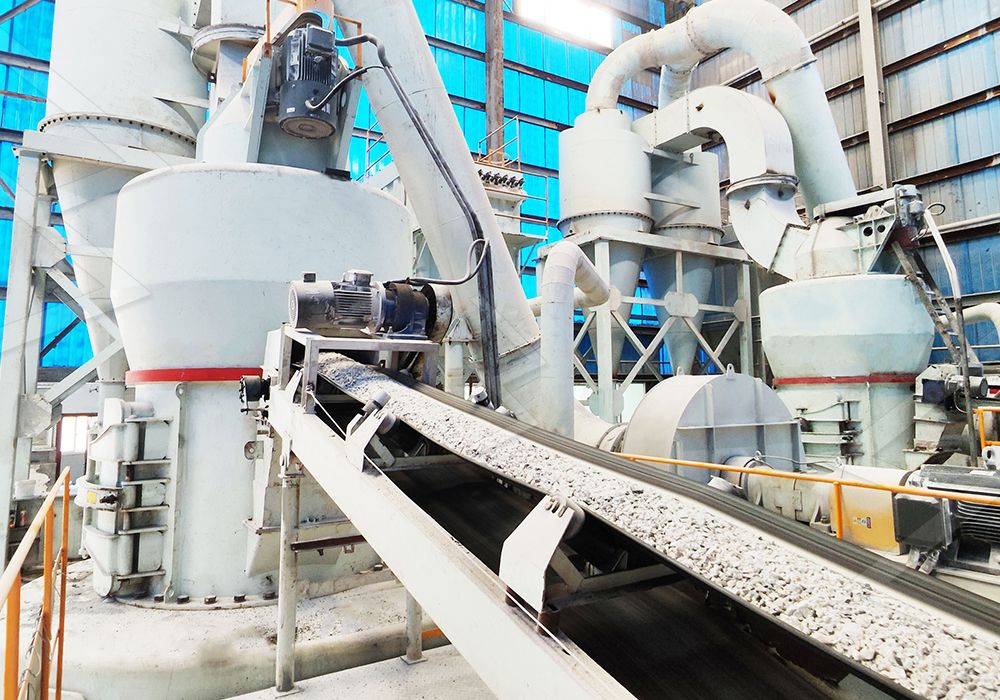Coal Gangue Grinding Mill Process Flow and Equipment Configuration
We provide a wide range of mills — including Raymond mill, trapezoidal mill, vertical mill, ultrafine mill, and ball mill, obtained ISO9001 international quality certification, EU CE certification, and Customs Union CU-TR certification. Suitable for processing minerals such as limestone, phosphate, quicklime, kaolin, talc, barite, bentonite, calcium carbonate, dolomite, coal, gypsum, clay, carbon black, slag, cement raw materials, cement clinker, and more.
The discharge range of these mills can be adjusted to meet specific processing needs, typically from 80-400 mesh, 600-3250 mesh, and can achieve the finest particle size of up to 6000 mesh(D50).
If you are looking for a reliable grinding solution to turn stone or minerals into fine powder, please feel free to contact our online customer service.
Introduction to Coal Gangue Processing
Coal gangue, a solid waste generated during coal mining and washing, presents both environmental challenges and potential economic value. Proper processing through grinding mills can transform this byproduct into valuable materials for construction, cement production, and other industrial applications. The grinding process requires specialized equipment capable of handling the abrasive nature of coal gangue while achieving the desired fineness for downstream applications.

Process Flow Overview
The complete coal gangue grinding process typically involves several key stages. Initially, raw coal gangue undergoes primary crushing to reduce particle size to manageable dimensions. This is followed by drying to reduce moisture content, which is crucial for efficient grinding. The pre-processed material then enters the grinding system, where it’s pulverized to the required fineness. Finally, the ground powder is collected through a separation system, with oversize particles returning for regrinding.
Equipment Selection Considerations
Selecting appropriate grinding equipment for coal gangue requires careful evaluation of multiple factors. The abrasive nature of coal gangue demands robust construction and wear-resistant materials in critical components. Production capacity requirements, target fineness, energy consumption, and operational costs all play significant roles in equipment selection. Additionally, environmental considerations such as dust control and noise reduction must be addressed through proper system design.
Recommended Equipment Solutions
For coal gangue grinding applications requiring ultra-fine powder production, our MW Ultrafine Grinding Mill presents an optimal solution. This advanced mill system handles input sizes up to 20mm with capacities ranging from 0.5 to 25 tons per hour. The MW series incorporates German cage-type powder selector technology, enabling precise fineness adjustment between 325-2500 meshes while achieving screening rates of d97≤5μm in a single pass.

The innovative design eliminates rolling bearings and screws within the grinding chamber, significantly reducing maintenance concerns associated with bearing failures or loose fasteners. External lubrication capability allows for continuous 24-hour operation without shutdowns for maintenance. Combined with efficient pulse dust collection and noise reduction features, the MW Ultrafine Grinding Mill delivers environmentally compliant operation while maintaining high production efficiency.
Alternative Configuration: LUM Ultrafine Vertical Grinding Mill
For operations requiring different throughput parameters, our LUM Ultrafine Vertical Grinding Mill offers another excellent option. With an input size capacity of 0-10mm and processing capability of 5-18 tph, this mill integrates advanced Taiwanese grinding roller technology with German powder separation systems. The unique roller shell and lining plate design promotes efficient material layer formation, enabling high finished product rates through single-pass milling.
Operational Advantages
Modern coal gangue grinding systems provide substantial benefits over traditional approaches. The MW series demonstrates 40% higher production capacity compared to jet grinding mills and double the output of ball grinding mills at equivalent fineness and power consumption. Energy efficiency is significantly improved, with system energy consumption reduced to just 30% of jet grinding mill requirements. These efficiency gains translate to lower operating costs and improved environmental performance.

Frequently Asked Questions
What is the typical energy consumption for coal gangue grinding?
Energy requirements vary based on target fineness and material characteristics, but modern systems like the MW Ultrafine Grinding Mill typically consume 30-40% less energy than conventional grinding equipment while maintaining higher throughput.
How does coal gangue moisture content affect grinding efficiency?
Excessive moisture significantly impacts grinding efficiency and product quality. Most grinding systems perform optimally with moisture content below 10%. For higher moisture materials, pre-drying systems are recommended to ensure efficient operation.
What maintenance considerations are specific to coal gangue grinding?
The abrasive nature of coal gangue necessitates regular inspection of wear parts. Equipment like the MW series addresses this through designs that eliminate internal bearings and screws in the grinding chamber, reducing maintenance frequency and complexity.
Can the same equipment process different materials besides coal gangue?
Yes, versatile grinding mills like the MW series can process various materials including limestone, calcite, dolomite, gypsum, barite, and other non-metallic minerals with similar hardness characteristics.
What environmental controls are typically integrated?
Modern systems incorporate multiple environmental protection features including efficient pulse dust collectors, silencers, noise elimination rooms, and fully sealed negative-pressure operation to prevent dust emissions and reduce noise pollution.
